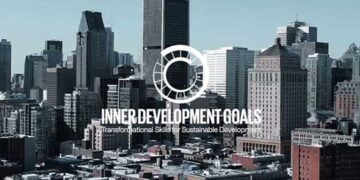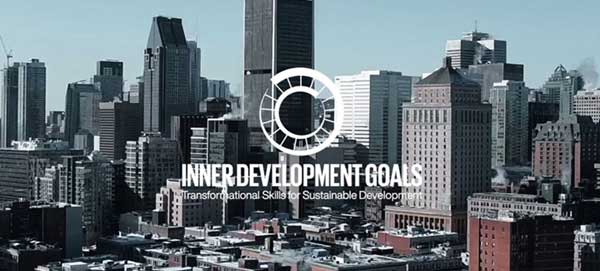Team Blitz India
We desperately need to understand the barriers and enablers of collective action on climate. A missing inner dimension is part of the puzzle.
“Collective action, or collective suicide” – these are humanity’s options according to UN Secretary General Antonio Guterres, with the Intergovernmental Panel on Climate Change (IPCC) declaring a ‘final warning’; and yet high level climate response remains woefully insufficient. None of the G20 countries are reducing emissions at a pace with their net- zero targets, and scientists have shown that even if they did achieve their long-term pledges, the world would remain on a trajectory for runaway climate feedback and 2.5-
2.9 degrees of dangerous warming by the end of the century.
Climate is just one of the UN’s 17 Sustainable Development Goals (SDGs), progress towards which has at best stalled in recent years; at worst slid dangerously backwards. Procrastination is widespread despite abundant and robust knowledge about what can be done to tackle these structural problems. There are more than enough roadmaps, technologies, policy instruments, even resources. It’s no longer a question of what should be done, it’s why hasn’t it been done already?
While the IPCC issues increasingly dire predictions and ever steeper solution pathways, it’s clear that more urgent warnings are unlikely to bring different results. What we need to understand better is why action on past reports has been so limited. Why the targets already committed to – on climate, on nature, on the SDGs – are not being met. We need ways to change how we make changes; goals for getting better at meeting our goals.
Among the reasons for our slowness in tackling our greatest crisis is a widespread tendency to treat climate as almost entirely a physical, technical or ‘external’ problem. But the problems of sustainability and development have never been simply material. They are “wicked problems”; enmeshed in a complex web of psychological, cultural and political interdependencies. They have tangled causes and unpredictable effects; and require diverse viewpoints, adaptive learning and cross-sector collaboration. A global
strategy for sustainability must therefore account for this ‘inner’ dimension – increasing psychological and cultural capacity to work together towards the material changes we need.
Thousands of experts, practitioners and scientists have taken time to consider what inner skills, qualities or capabilities are collectively required to build a sustainable future. Their insights now underpin a framework for the aspects of inner life that can support critical structural change. These 23 inner development goals, modelled on the Sustainable Development Goals, include qualities like ‘inner compass’, ‘complexity awareness’, ‘empathy’ and ‘courage’.
The Inner Development Goals framework is a bold attempt to capture the vast complexity of the inner resources that humanity needs to overcome its predicament. These inner goals are already being integrated into training programmes for public servants and within multinational corporations like IKEA, Novartis and Google. They’re also finding a place alongside the physical sciences as an important part of ‘climate literacy’ in schools, where burgeoning climate anxiety underlines the importance of including inner capacities in our understanding of the crisis.

Inner development is nothing ‘new’. Throughout Indigenous, religious and other cultural traditions, many individuals and groups are already adept in inner cultivation – but elsewhere in the world, these neglected capacities need attention. Unsurprisingly though, the qualities and skills foundational to sustainable transformations vary across countries and cultures. Everyone’s starting somewhere different – with a diversity of strengths and unique work to do. So a global conversation will require a common language, developed inclusively. To culturally enlarge the Inner Development Goals framework, a global survey is currently open for people across the world to contribute their own perspective, and your own input is warmly invited to achieve the aim of gathering at least 1,000 diverse viewpoints from each of 100 countries.
Often the inner world is considered in terms of the individual, sometimes within organisations or communities and in rare circumstances at a national level – but the time has now come for a global conversation. The challenges humanity faces can appear insurmountable. But whereas we’re used to hearing about feedback loops when it comes to climate breakdown, unseen tipping points can be a feature of positive social change too – and here cultural and psychological growth are crucial enabling factors. While the Inner Development Goals are not a magic bullet, they are an accessible, credible starting
point for understanding cognitive, emotional and relational capacities as critical to “outer” transformations. Wherever our approach to a problem is the problem, inner development is part of the solution.
















